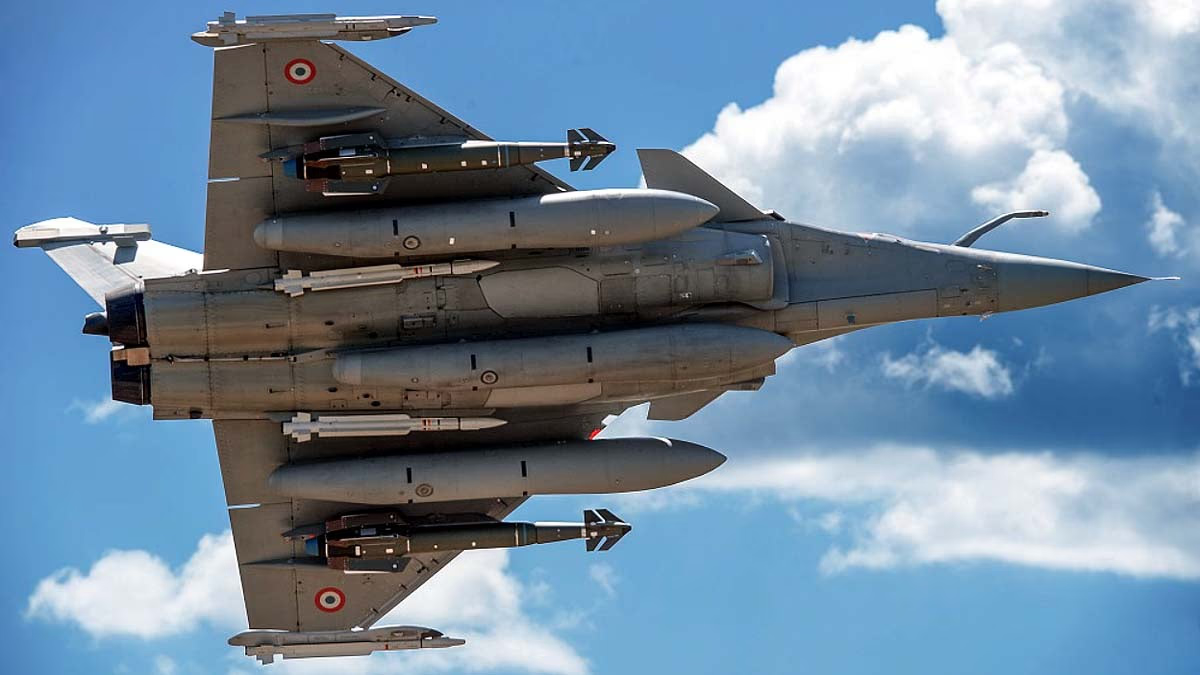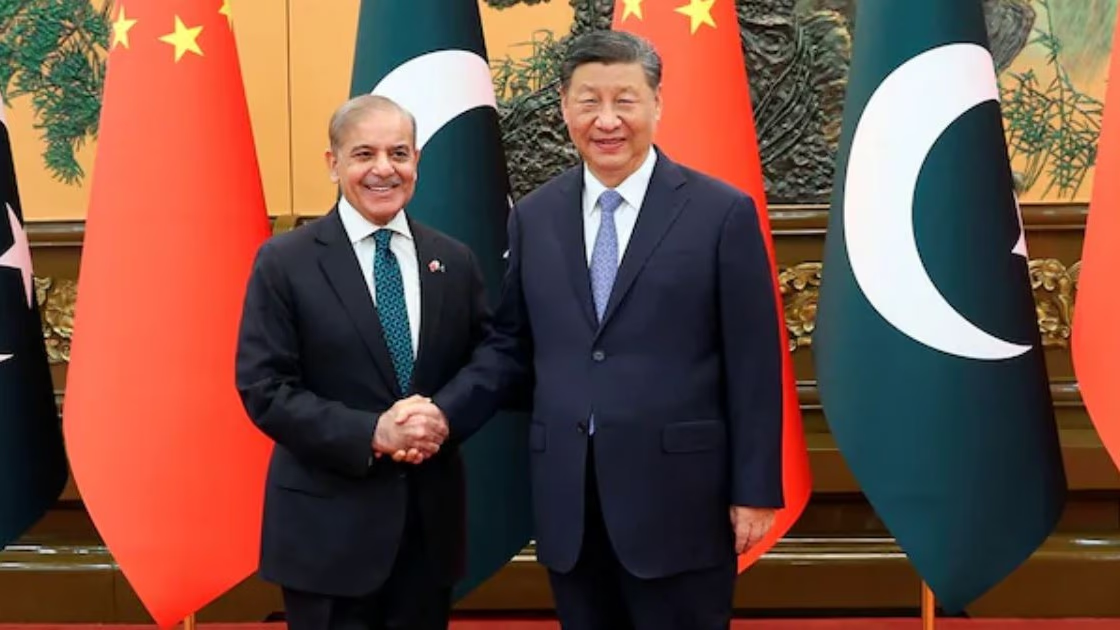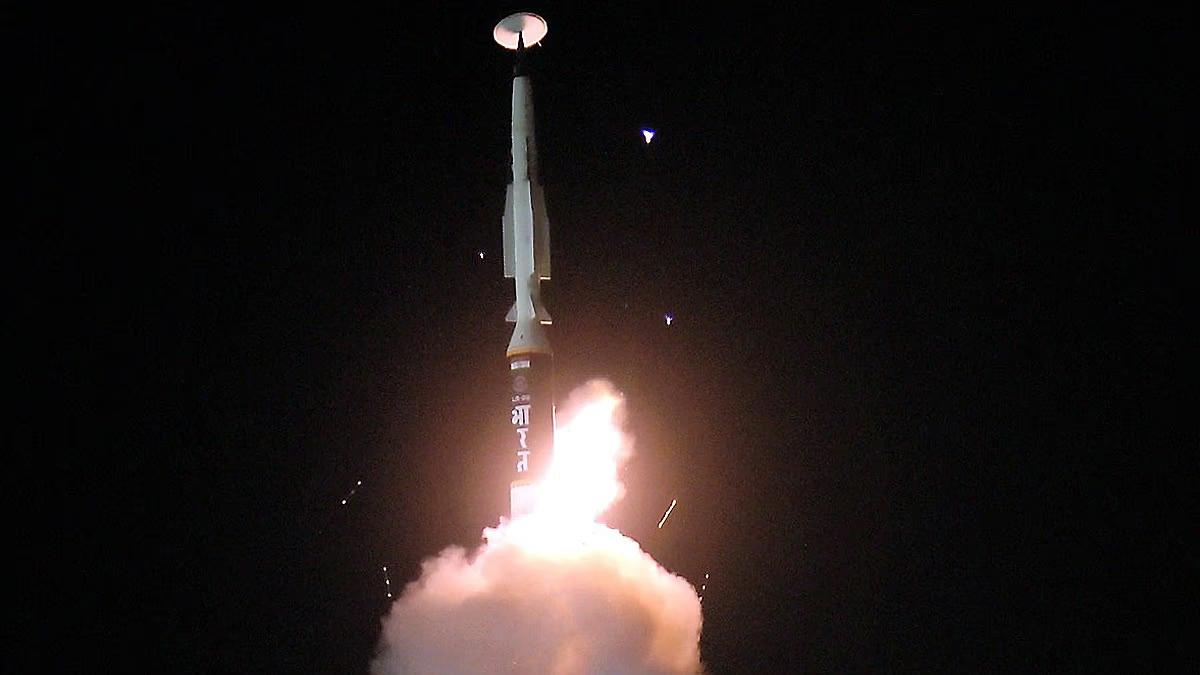Today, April 28, 2025, India and France seal a significant deal for 26 Rafale-M fighter jets, valued at approximately ₹63,000 crore. This acquisition is designed to bolster the Indian Navy with 22 single-seat and 4 twin-seat jets, marking a strategic setback for Pakistan.
These cutting-edge jets will be deployed on INS Vikrant and INS Vikramaditya, enhancing India’s maritime prowess as demonstrated in the 1971 conflict.
Only India and China possess aircraft carriers in South Asia
Outside of India and China, no other nation in South Asia boasts aircraft carriers. China's carriers feature three types of multirole jets: J-10, J-15, and Sukhoi-30. Pakistan's fighter fleet heavily relies on Chinese aircraft. Discover how Rafale-M stands against these competitors...
Also read:
Compact Size for Easy Maneuverability
J-10: 55.5 feetJ-15: 73.1 feetSu-30: 72 feet
Rafale-M:
a nimble 50.1 feet.
Understanding the Deal
The Rafale-M deal is a strategic triumph, fortifying India’s inventory with this multirole fighter jet. As it joins India's fleet, handling scenarios involving China and Pakistan within the Indo-Pacific becomes feasible. The deal includes provisions like maintenance, logistics support, and training for naval personnel.
Also read:
Pilot Configurations
J-10: single pilotJ-15: 1/2 pilotsSu-30: 2 pilots
Rafale-M:
accommodates 1 or 2 pilots.
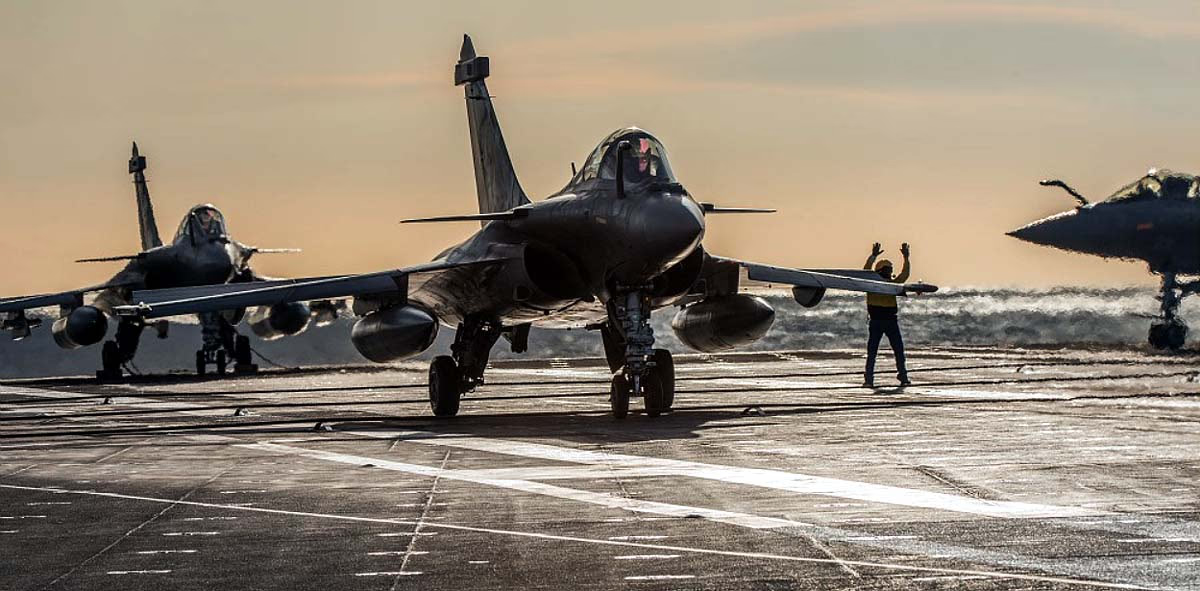
Source: aajtak
Lighter Weight for Easier Handling
J-10: 14,000 kgJ-15: 27,000 kgSu-30: 24,900 kg
Rafale-M:
15,000 kg, heavier than J-10 but lighter than the others.
The Rafale-M Fighter Jet Unveiled
Advanced radar systems, electronic warfare capabilities, and mid-air refueling features characterize Rafale-M, enabling extensive range and mission versatility across air, sea, and land.
Armed with precision-guided munitions like Meteor, Scalp, and Exocet, Rafale-M is exceptional for anti-ship warfare, offering comprehensive domain superiority and a protective blanket around the nation.
Also read:
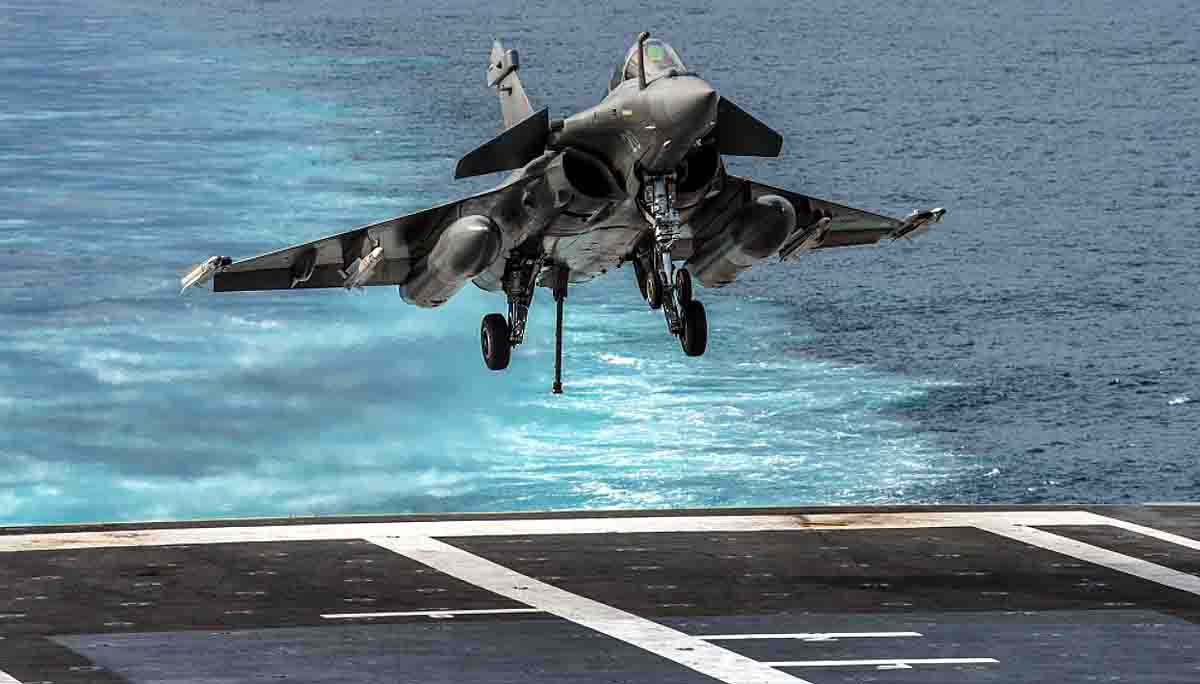
Source: aajtak
Leading in Fuel Capacity
J-10: 8,950 litersJ-15: 9,500 litersSu-30: 9,400 liters
Rafale-M:
dominates with 11,202 liters, offering prolonged flight and dogfight proficiency.
Speed and Performance
J-10: 2,205 km/hrJ-15: 2,963 km/hrSu-30: 2,120 km/hr
Rafale-M:
matches 2,205 km/hr, competitive against peers.
Also read:
Combat and Ferry Range Superiority
J-10: 1,240 km (Combat)J-15: 3,500 km (Ferry)Su-30: 3,000 km (Ferry)
Rafale-M:
excels with 1,850 km combat and 3,700 km ferry ranges.
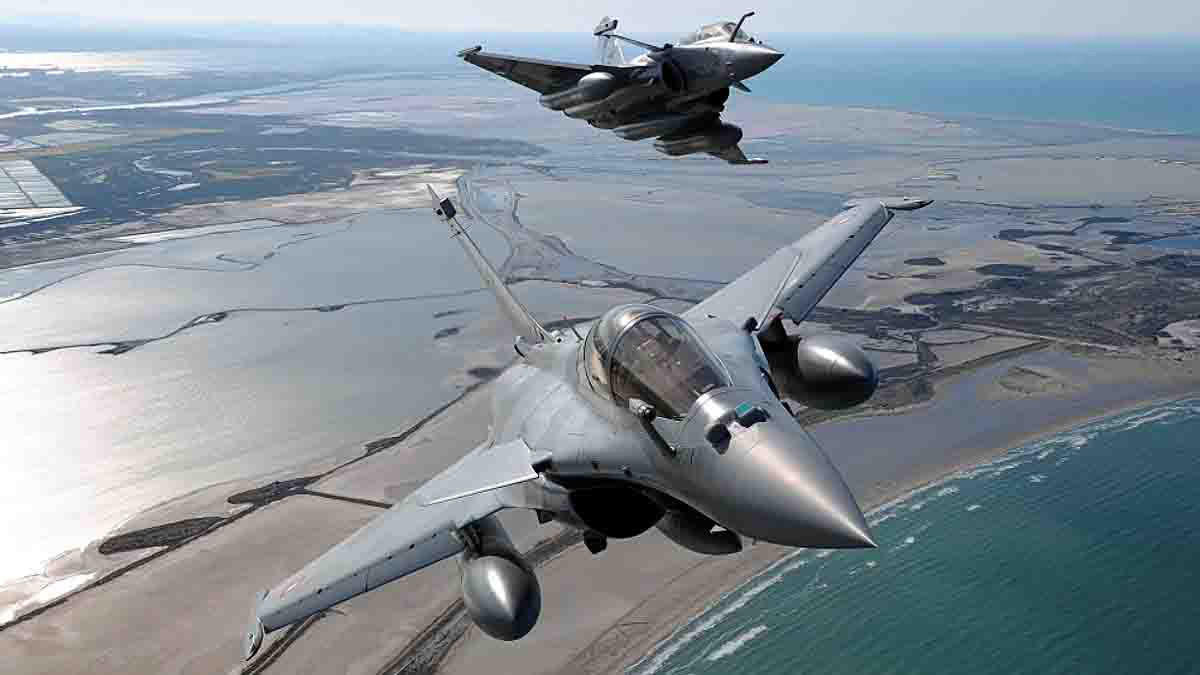
Source: aajtak
Height Limitation Challenge
J-10: 59,000 feetJ-15: 66,000 feetSu-30: 57,000 feet
Rafale-M:
reaches 52,000 feet.
Fighter Jet Generations Unveiled
J-10/J-15: Fourth-generation jetsSu-30: Multirole air superiority jetRafale-M: Advanced 4.5-generation fighter.
Rafale’s Armament Capacity
Chinese J-10 sports 11 hardpoints, enabling a variety of missiles and unguided rockets. J-15 offers 12 hardpoints for diverse weaponry. Su-30, with similar hardpoints and weaponry options, contrasts with Rafale-M's 14 hardpoints, incorporating numerous missile types and a nuclear missile option.
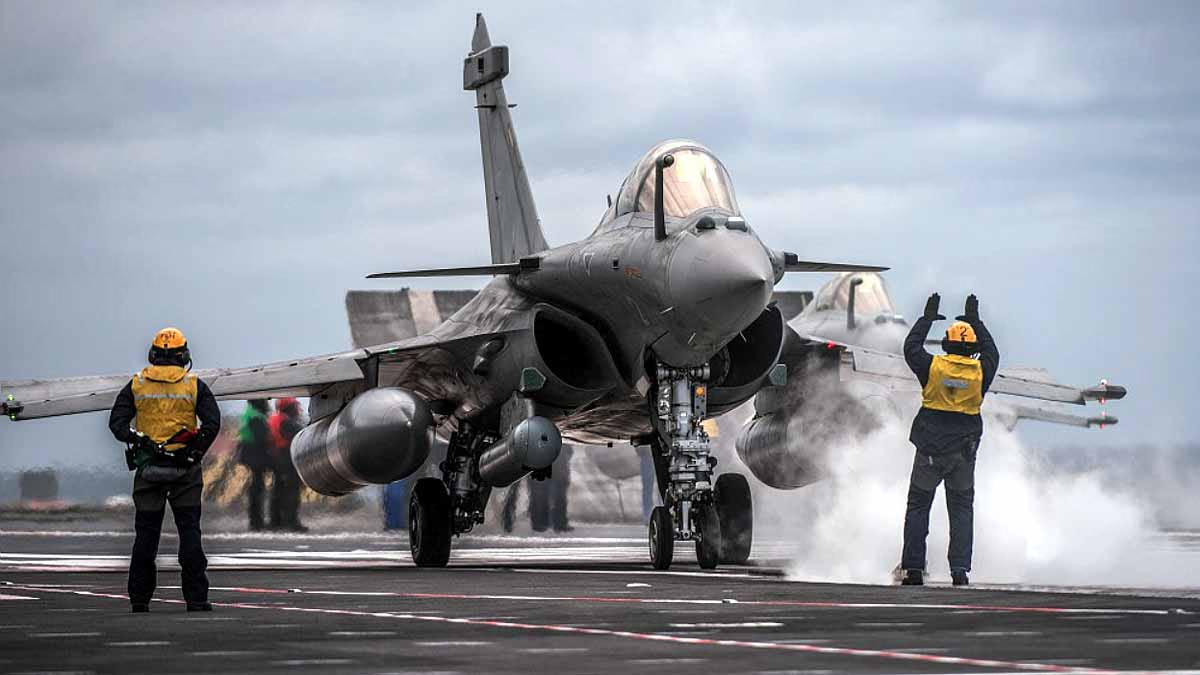
Source: aajtak
While J-10 and J-15 are fourth-generation aircraft carrier jets, Su-30 dominates air superiority roles. Rafale-M, a modern 4.5-generation jet, poised for carrier operations, can confront Chinese and Pakistani aviation on equal footing despite minor shortcomings.
Pakistan's reliance on Chinese fighter jets, with the absence of China's fifth-generation J-20s in their naval role, highlights Rafale-M's capability to bridge operational gaps, supporting India's air and sea dominance.
